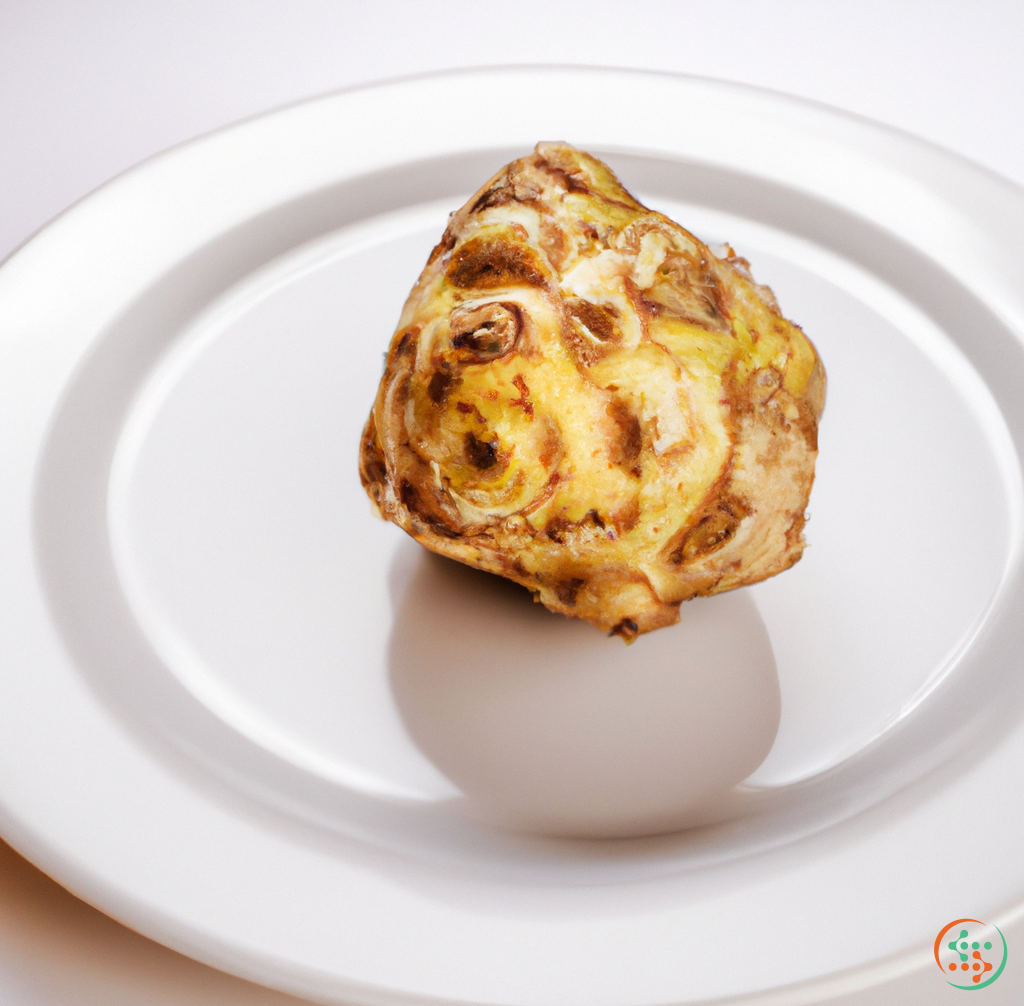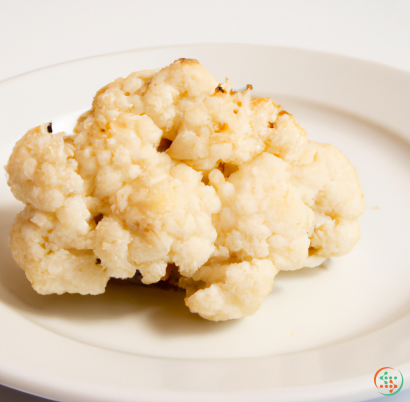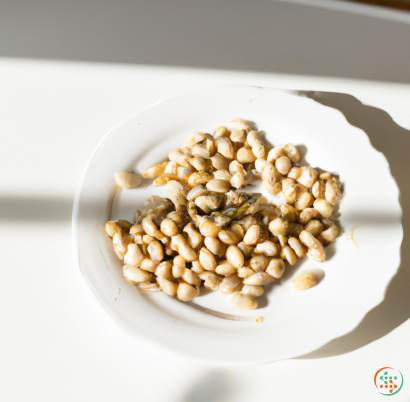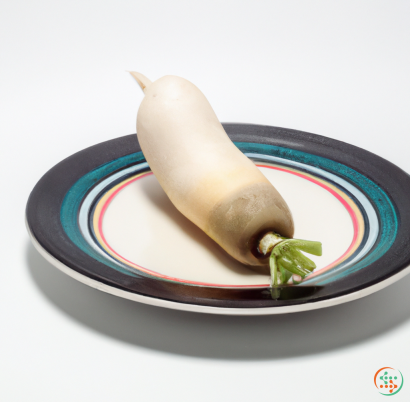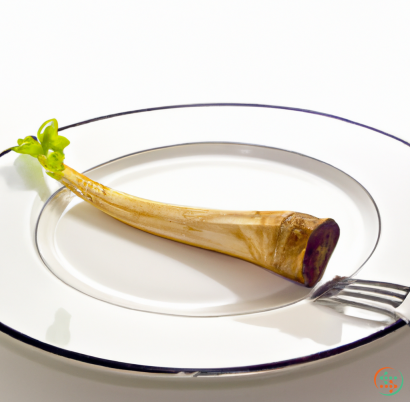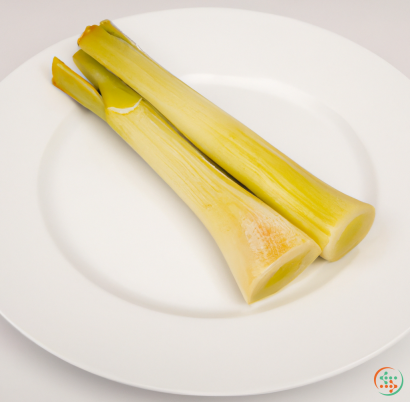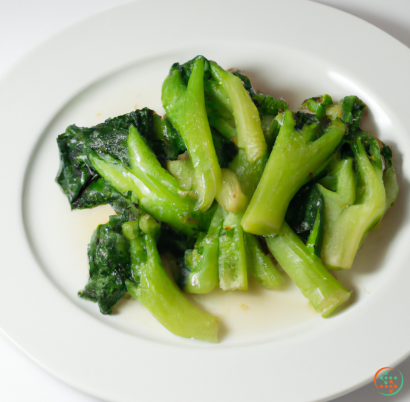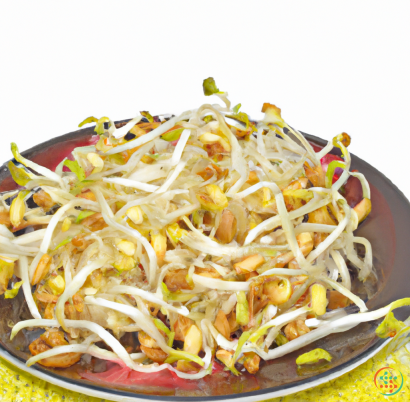Jerusalem Artichoke: Complete Vitamin Profile
Jerusalem Artichoke: Considered a good source of vitamins?
Yes, Jerusalem artichoke is a good source of vitamins. It contains various important nutrients like magnesium, potassium and iron, as well as vitamins B1, B6, C, E, K and niacin. Moreover, it also has high amounts of dietary fiber and antioxidants.
Magnesium helps in energy production and in the synthesis of proteins and DNA, while potassium contributes to muscle function, fluid balance and cell communication. Iron controls the oxygen storage in red blood cells and vitamin B1 (thiamine) assists metabolic processes and supports the organs. Vitamin B6 is involved in metabolism, nerve functions and enzyme activity; Vitamin C contributes to tissue repair and development, while Vitamin E serves as an antioxidant that protects cells from free radicals, and Vitamin K aids in clotting for wound healing. Niacin supports healthy skin, digestion and cognitive performance. In addition, Jerusalem artichokes contain several other essential minerals such as zinc, copper and manganese. Lastly, it's dietary fiber contributes to maintaining efficient bowel movement and can aid in weight management. All these components make Jerusalem artichokes a nutritious option, especially those with liver or kidney illnesses who may be deficient in some of the aforementioned vitamins and minerals.
Jerusalem Artichoke ‐ Vitamin Information
Introduction
The Jerusalem artichoke (Helianthus tuberosus), also known as the sunroot, sunchoke, earth apple, or topinambour, is a species of flowering plant that is part of the sunflower family. Native to North America, it has been cultivated as an edible crop since ancient times, and today provides many health benefits through its vitamin content. In this paper we will examine the vitamins found inside the Jerusalem artichoke, discussing in detail their biological functions and how important they are for human nutrition.
Vitamin Content Overview
Jerusalem Artichokes are a rich source of vitamins, providing a range of essential nutrients including vitamins A, B-6, C, E, K and Folate. Vitamin A supports healthy vision and is essential for proper immune system function, while vitamin B6 helps maintain normal blood sugar levels, aiding energy metabolism. Vitamin C is necessary for tissue health and growth, while vitamin E works as an antioxidant which can help protect against free radicals, preventing illnesses such as cancer. Vitamin K is important for forming blood clots and maintaining bone mineralization, while folate helps support the production of red blood cells and nerve regeneration.
Vitamin A
Vitamin A, also known as retinol, plays a major role in vision health by helping to keep eyes flexible and sensitive to light. It is a fat-soluble vitamin that helps regulate cell development and performs vital immunoregulatory roles within the body by controlling transcription factors and promoter activity. Vitamin A is commonly found in greater concentrations in animal products such as eggs, fish oil and dairy, but vegetarians and vegans may obtain their intake from fortified foods or yellow and green vegetables like spirulina or spinach. The Jerusalem artichoke is no exception, boasting large amounts of vitamin A, containing up to 496 IU per 100 grams. This equates to over 16 percent of the US daily recommended allowance.
Vitamin B6
Vitamin B6, otherwise known as pyridoxine, plays a crucial role in energy metabolism and the formation of neurotransmitters. It is involved in more than 140 different reactions throughout the body and is therefore essential for physical and mental balance. Vitamin B6 is commonly found in high concentrations in liver, egg yolk, walnuts, seafood, chicken and organ meat, with some industrially processed foods also having fortified sources. Jerusalem artichokes provide high levels of vitamin B6, offering between 0.9 - 1.3 ?g per 100 grams, which equates to between 70 - 97 % of the adult RDA depending on gender.
Vitamin C
Found in abundance in fruits and vegetables, vitamin C is one of the most familiar vitamins, playing an essential role in the maintenance of healthy tissue and repair of damaged bones and teeth. It is also a powerful water-soluble antioxidant that carries out numerous metabolic processes and is essential for healthy skin, connective tissue, and blood vessels. Good natural sources of vitamin C include oranges, bell peppers, broccoli and sprouts, although certain juices and breakfast cereals offer fortified variations too. Jerusalem artichokes contain a moderate amount of vitamin C - around 7.7 mg per 100 grams, roughly 13% of the recommended dietary allowance.
Vitamin E
Another fat soluble nutrient, vitamin E serves as an antioxidant superhero shielding our cells from damaging oxidation issues caused by things such as pollution, cigarette smoke, alcohol and poor diet. As powerful as it is though, your body cannot produce enough so supplementation from food sources is beneficial. Edible goods full of vitamin E include nuts, seeds, avocado, wheat germ and olives, even popcorn at times has had traces added. Approximately 5.1 mg per 100 grams of Jerusalem artichoke is found naturally, making it an excellent source of easily absorbable vitamin E.
Vitamin K
Next we have vitamin K, another group of fat-soluble compounds that play an integral role in both blood clotting and bone mineralization. Like other essential nutrients, vitamin k is available in numerous common foods, namely leafy greens, Brussel's sprouts, asparagus, shiitake mushrooms and olive oil. Furthermore, given its fat-soluble nature, higher quantities can be present in lactose products like aged cheese, egg yolk and butter. Inside a handful of Jerusalem artichoke, you should expect to gain upwards of 19 ?g, representing 15% of the RDAs movement in younger adults.
Folate
The last key vitamin worth mentioning is Folate (B9). This water-soluble nutrient assists in formulating new DNA strands and synthesizing proteins, meaning it serves a specific purpose in terms of embryo development during pregnancy as well as regulating erythropoiesis and neurulation. Dairy and egg products, yeast extract, beef liver and dark leafy greens tend to constitute good dietary sources, whereas various starchy vegetables like potatoes, beans and lentils rank high when it comes to folate. One hundred grams of Jerusalem artichoke can provide us with almost 27 micrograms, meeting the 20 per cent mark set by the Ministry of Health in Canada.
Conclusion
In conclusion, the Jerusalem artichoke offers great value from both culinary and nutritional perspectives, and contains generous supplies of six indispensible vitamins: A, B6, C, E, K and Folate. Not only does the humble root vegetable bring delicious flavours to meals, but it provides outstanding nutrition too owing to its dense vitamin pack. Since all these vitamins play pivotal roles in bodily performance and overall health status, it would perhaps behoove us to consider incorporating the sunroot/topinambour into regularly meal plans.
| Vitamin A | 0.001 mg | |
| Beta-Carotene | 0.012 mg | |
| Vitamin E | 0.19 mg | |
| Vitamin K | 0.1 ug | |
| Vitamin C | 0.004 grams | |
| Vitamin B1 | 0.2 mg | |
| Vitamin B2 | 0.06 mg | |
| Vitamin B3 | 0.0013 grams | |
| Vitamin B4 | 0.03 grams | |
| Vitamin B5 | 0.4 mg | |
| Vitamin B6 | 0.08 mg | |
| Vitamin B9 | 0.013 mg |
